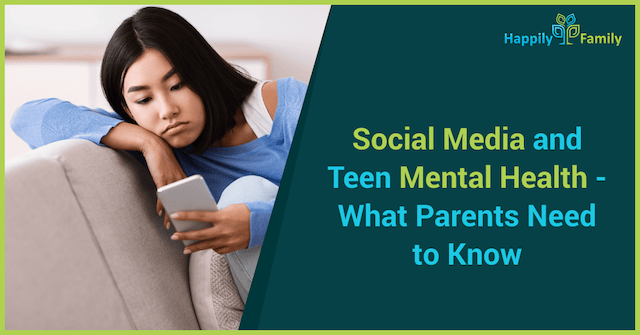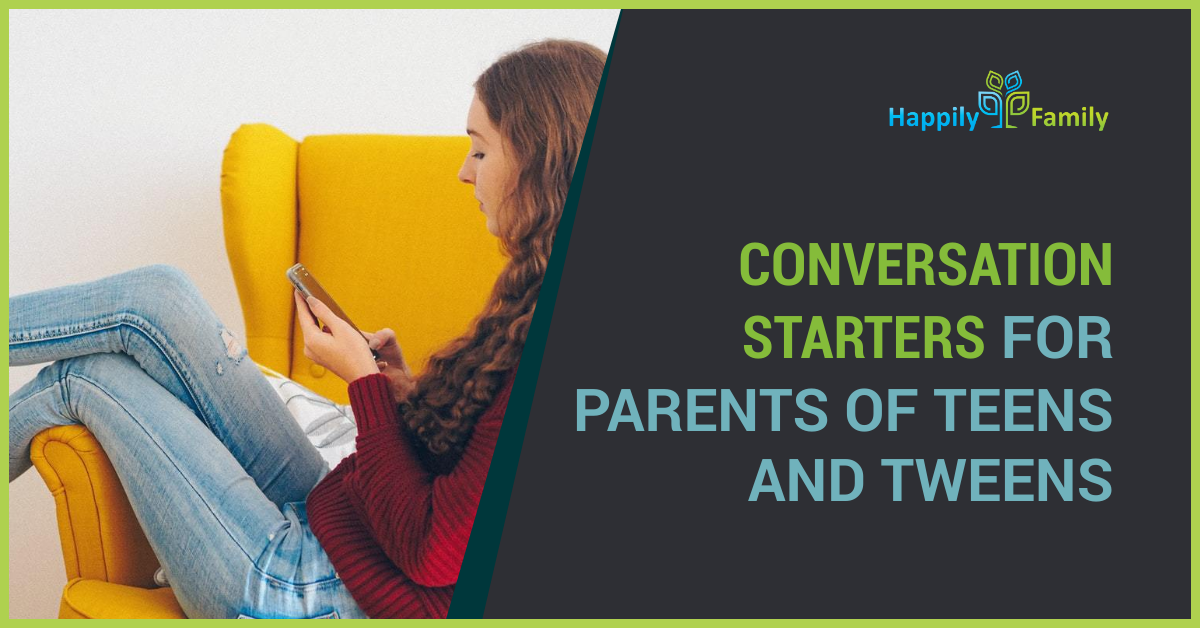Recently, we asked a 20-year-old, “What do parents need to know about raising teens right now?”
She had a lot to say and we had a really sweet conversation that I think you’ll love. (She didn’t want me to record it, but I took notes that I can share with you.)
But do you know what the best part was?
This is a young person who struggled a lot as a teen and really pushed back against her parents. And now, after everything that happened, she’s on a solid path forward.
She’d be the first to admit that even during those hard times, she knew her parents were on her side. She didn’t always appreciate what her parents did, and her parents weren’t perfect, but they got through all of it together, and their relationship is now stronger than ever.
Want to hear her wise advice for parents of teens? Read on.
What Is The Most Important Part of Raising a Teen?
A 20-year-old said, “The most important thing that parents need to understand about their teen is that cultivating a sense of closeness and support is your top priority. If a parent prioritizes connection during the hardest times, then your teen might come to you for help.”
What Can Happen If You Try to Control Your Teen?
“If you try to control your teen, they will do the opposite of what you want. Teens need autonomy. Closeness and control are very hard to have at the same time. If you have closeness, then you can have collaboration and partnership.”
How Can Parents Help Their Teen?
“If you want to help your teen, you need to do it carefully. When my parents tried to help me I thought, ‘I’m doing something wrong. They are trying to fix me. I’m broken.’ And I didn’t want to accept their help or admit to them or myself that I needed it. The solution is to give your teen choices. Giving them a ‘say’ is really important. Ask your teen, ‘Do you have any ideas?’ ‘If my idea doesn’t work, what ideas do you have?’ ‘What would meet everyone’s needs?’ And you also need to ask these questions in a non-confrontational way.”
How Can Parents Balance Autonomy and Safety with Their Teen?
“If you want your teen to be safe, tell them, ‘You can take charge of this.’ Remember that your child is changing from a kid to an independent adult. Get clear on your priorities. If a situation is life-threatening, then you can step in, but very few things are life-threatening. Even when I was feeling suicidal, I still needed to feel like I had a choice. When I was ready, I came to my parents and told them that I needed to go to the hospital. I didn’t see a path forward besides hurting myself. At the hospital, they said, ‘You can’t hurt yourself here,’ but they didn’t really do anything. I still got to be the driving force behind big life decisions. I decided to lean into the process and see where it takes me, to sit and reflect. I came to conclusions on my own.”
When Can A Parent Do If They Want Their Teen to Change?
“You can’t force someone to want help or to want to change. If you see something your teen doesn’t see about themself, ask them questions, ‘How do you see this?’ ‘How do you feel about how you’re doing in this area?’
What If Your Teen Isn't Living Up To Your Expectations?
“Parents need to learn to let go of their own personal beliefs and expectations of who their kids are. They might have a preconceived idea of who their kids are going to become. I chose a different path than my parents expected. I got a GED. It was an act of self-preservation, self-defense. I knew what I needed. I appreciated that my parents showed me other options. But I knew I was going to get my GED. When your teen is sold on something, support them.”
What Can Parents Do If They Don’t Like A Teen’s Behavior?
“I needed to feel like I had someone in my corner. When my parents would express that they didn’t like a certain behavior. I made it mean that they didn’t like me. I felt ganged up on. I didn’t want them to point out everything I was doing wrong. I already felt bad enough about those things. I was doing my best, even if it didn’t look like that from the outside.”
What Should A Parent Do When Their Teen Has Strong Feelings?
“I needed to learn how to let my walls down. I needed to understand that discomfort can be positive rather than negative, and learn to embrace discomfort and to sit with it. The message that parents need to give their teens is, ‘Your feelings are important. They are real and vital to this conversation. Emotions are a positive thing.’ I know now that strong emotions are a good thing. An emotional reaction is for our survival. I don’t need to suppress my feelings. I need to be aware of them, acknowledge them, and dive into them.”
What Can Parents Do When Their Teen Is Upset?
“The most helpful thing a parent can say when a teen is angry is ‘All your feelings are okay.’ Parents don’t need to be defensive, or try to fix it, or be angry back. Don’t take your teen’s feelings personally. Know that these feelings will pass. You can work out a solution together. Maybe you can ask your teen to reflect on their life. Ask them, ‘How is this going? Is this working for you? How can we work together to make this decision better?’ Your teen wants your support. They want to be seen, acknowledged, and celebrated. Even if you don’t agree with them, they are growing into a person. This is exciting. Celebrate your teen.”
Now we want to hear from you…
Which piece of advice is the hardest for you to do with your own teen?
Which one surprised you the most?
Post in the comments below.
Please note:
- This is one young adult’s perspective and experience.
- This blog post is not a substitute for the advice of a medical or mental health professional.
- If you are concerned about suicide, please seek out suicide prevention resources.










Thank you for this lovely, frank post; so helpful for those of us in the thick of it. I honestly find all these things difficult – particularly not taking the snarky comments personally and not giving my unsolicited advice or trying to control when I see my children making choices that don’t seem to be in their best interests. I feel like I was much better suited to parenting younger-aged children and struggle to adapt my style to the teen years. I keep reading these posts – definitely helps remind me!